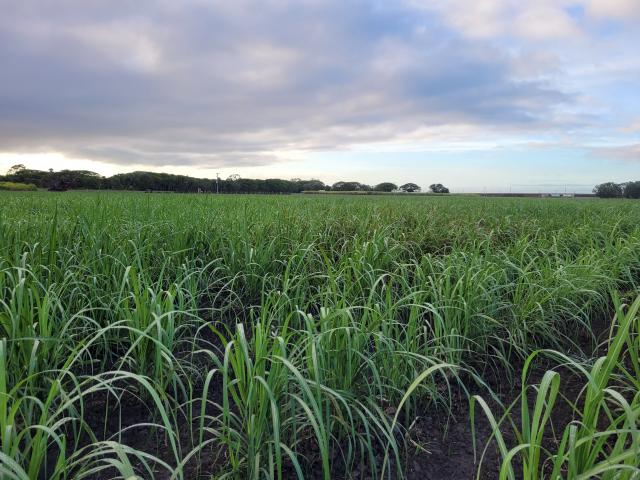Up to $32.6 million over four years will be invested in the future of Australia’s sugarcane industry with research and development projects set to increase the productivity, profitability and sustainability of the Australian sugarcane industry.
Sugar Research Australia (SRA) and the Queensland Government’s Department of Primary Industries (DPI) are investing in a diverse portfolio of novel and strategic research activities.
The new projects will target improved efficiency, competitiveness, sustainability and innovation for Australian sugarcane growers, milling companies, and regional communities.
Funding will be allocated as follows:
$6 million to create transformational breeding technologies to develop high yielding and disease resistant varieties, and explore the potential for energy cane.
$12.1 million to overcome agronomic production constraints, optimise crop management, and improve the industry’s sustainability credentials to maintain market access for Australian sugar.
$6.8 million to develop sustainable management approaches for pests, weeds and pathogens and biosecurity preparedness.
$5.5 million to optimise operations for enhanced milling efficiency and develop opportunities to diversify revenue streams in the bioeconomy.
$2.2 million to increase adoption of available technologies that increase productivity, profitability and sustainability for sugarcane growers, millers, and regional communities.
SRA and DPI will make the transformational investment following the conclusion of SRA’s 10th Anniversary Research Fund Call, a bursary established in November 2023 to commemorate 10 years since the organisation’s formation.
SRA chief executive officer Mick Bartlett said the rigorous multi-step approval process for applicants ensured that projects with the strongest potential to deliver real change and positive industry-wide outcomes were successful.
“The calibre of submissions was exemplary and represents the strong scientific standing we have in the sugar industry, particularly within SRA,” Mr Bartlett said.
“Each of these projects has the potential to deliver positive change, and whole-of-industry research outcomes capable of being adopted on farm and within the milling sector.”
The successful projects cover a broad spectrum of key industry challenges, from agronomy and farming systems, to crop protection, variety development, growing and milling.
Minister for Primary Industries Tony Perrett said the Queensland Government has a long history of supporting research, development and extension (RD&E) activities within the sugarcane industry driving improvements in productivity and profitability.
“We know RD&E is critical to help industry gain improvements in production, leading to longer term prosperity. This helps farmers and also helps local communities,” Minister Perrett said.
“Supporting our key agricultural industries, together with industry partners like SRA, helps our farmers solve critical problems and lets them get on with the job of producing the world’s best food and fibre.
“These projects will help gain a greater understanding of industry problems, apply and adopt advanced technology, and test and implement cutting-edge farming practices to create a stronger, sustainable industry.”
The projects are a mix of new research, as well as extensions to existing projects that can now be further developed.
SRA opened submissions to its 10th Anniversary Research Fund in November 2023, a bursary established to commemorate 10 years since the organisation’s formation.
More than 160 applications were received, with each submission assessed on its potential to deliver positive adoption outcomes for the Australian sugar industry.
“Our Board is committed to investing in sound research activities that foster successful collaborations and partnerships, but also deliver meaningful outcomes that benefit both our growers and millers,” Mr Bartlett said.
“Each of these projects is underpinned by a motivation to drive positive change, that brightens the future for the entire Australian sugarcane industry.”
The 10th Anniversary Fund was approved by the SRA Board as additional funding to its existing portfolio of research projects, aligning with SRA Strategic Plan 2021-2026.









